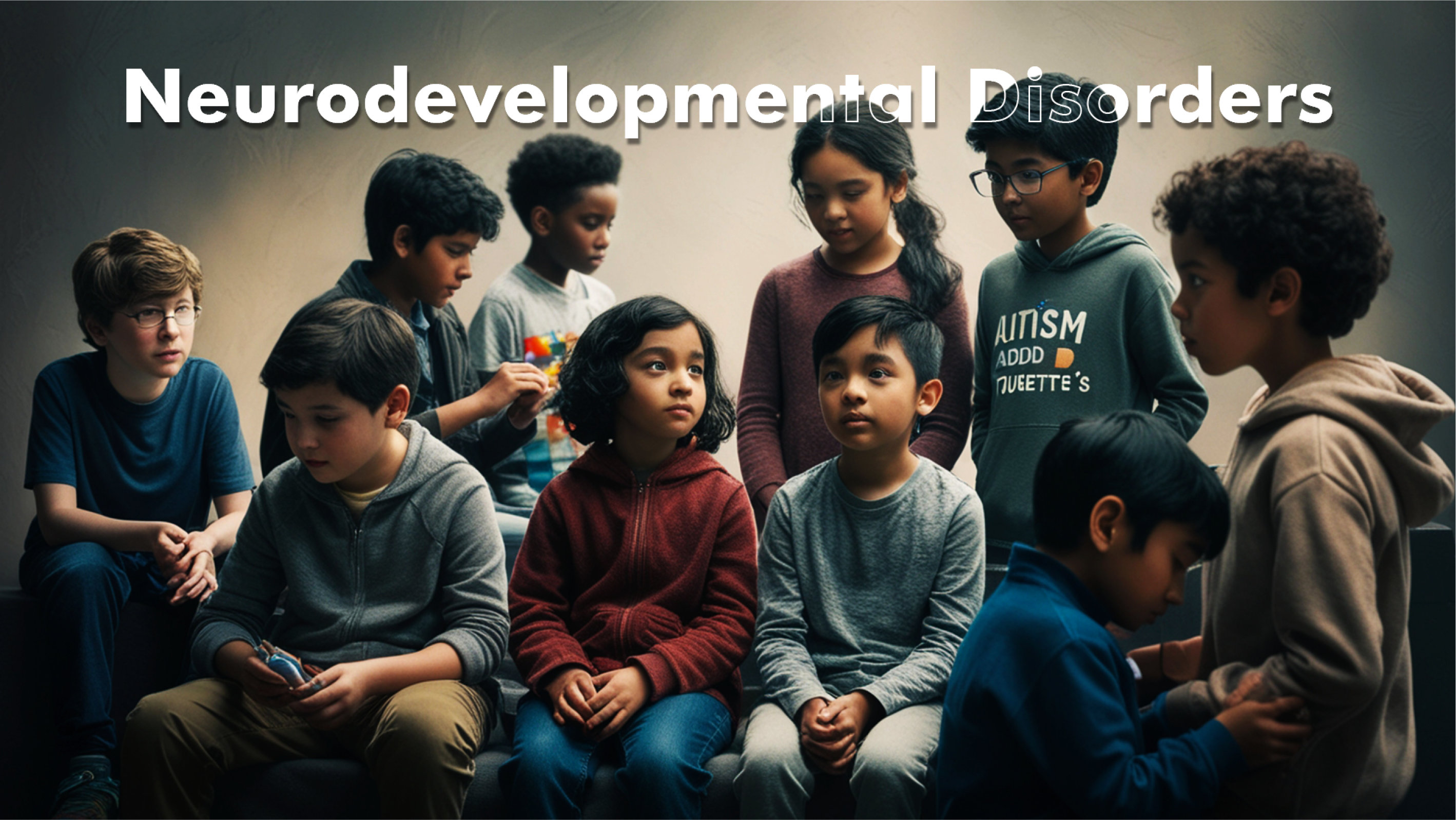Book Appointment Now

Neurodevelopmental Disorders
Understanding Neurodevelopmental Disorders:
Neurodevelopmental disorders are a group of conditions that affect the development of the brain and nervous system, causing impairment in personal, social, cognitive, or occupational functioning. These disorders typically appear early in development, often before a child enters grade school, and can affect multiple areas of life.
Common Types of Neurodevelopmental Disorders
Autism Spectrum Disorder (ASD):
ASD is characterized by challenges in social communication and interaction, as well as restricted and repetitive patterns of behavior, interests, or activities. The severity of symptoms varies widely, with some individuals requiring significant support and others leading relatively independent lives.
Attention-Deficit/Hyperactivity Disorder (ADHD):
ADHD is marked by persistent patterns of inattention, hyperactivity, and impulsivity that interfere with functioning or development. It may present as primarily inattentive, primarily hyperactive-impulsive, or a combination of the two.
Intellectual Disability (ID):
This disorder involves significant limitations in both intellectual functioning (such as reasoning, learning, and Problem solving) and adaptive behavior, covering everyday social and practical skills.
Specific Learning Disorders (SLD):
These include difficulties in reading (dyslexia), writing (dysgraphia) And mathematics (dyscalculia). SLDs can cause difficulties in acquiring and using academic skills, which can significantly affect academic achievement.
Communication Disorders:
These Encompass language disorders, speech sound disorders, and social (pragmatic) communication disorders, which affect the ability to understand or produce language and communicate effectively with others.
Developmental Coordination Disorder (DCD):
Also known as dyspraxia, DCD involves difficulties in acquiring and executing coordinated motor skills, making everyday activities challenging.
Causes and Risk Factors
The causes of neurodevelopmental disorders are complex and multifactorial. These often involve a combination of genetic and environmental factors, such as:
Genetic Effects:
A family history of neurodevelopmental disorders or genetic syndromes (eg, Down syndrome, fragile X syndrome) may increase the risk.
Prenatal and Birth Factors:
Toxic substances (such as alcohol or drugs), infections, or complications during pregnancy or birth can contribute to the development of these disorders.
Environmental Factors:
Early life experiences, including malnutrition, exposure to environmental toxins, and psychological stress, may play a role.
Diagnosis and Management
Assessment usually involves comprehensive assessments by health care professionals, including developmental screening, psychological testing, and behavioral observations. Early diagnosis and intervention are critical to Effective management of neurodevelopmental disorders.
Management strategies very depending on the disorder and its severity. These may include:
Behavioral Therapies:
Applied behavior analysis (ABA), social skills training, and cognitive behavioral therapy (CBT) are commonly used to address specific behavioral and emotional challenges.
Educational Interventions:
Special education services, individualized education plans (IEPs), and classroom accommodations can support learning and development.
Medication:
In some cases, medication may be prescribed to manage symptoms, especially in conditions such as ADHD or chronic mood and anxiety disorders.
Family Support and Counseling:
Families can benefit from counseling and support groups to deal with the challenges of raising a child with a neurodevelopmental disorder.
Neurodevelopmental disorders present unique challenges but also opportunities for growth and adaptation. With the right Supports and interventions, people with these conditions can live full and meaningful lives. A comprehensive approach to awareness, early detection, and management is key to improving outcomes and quality of life for those affected.



